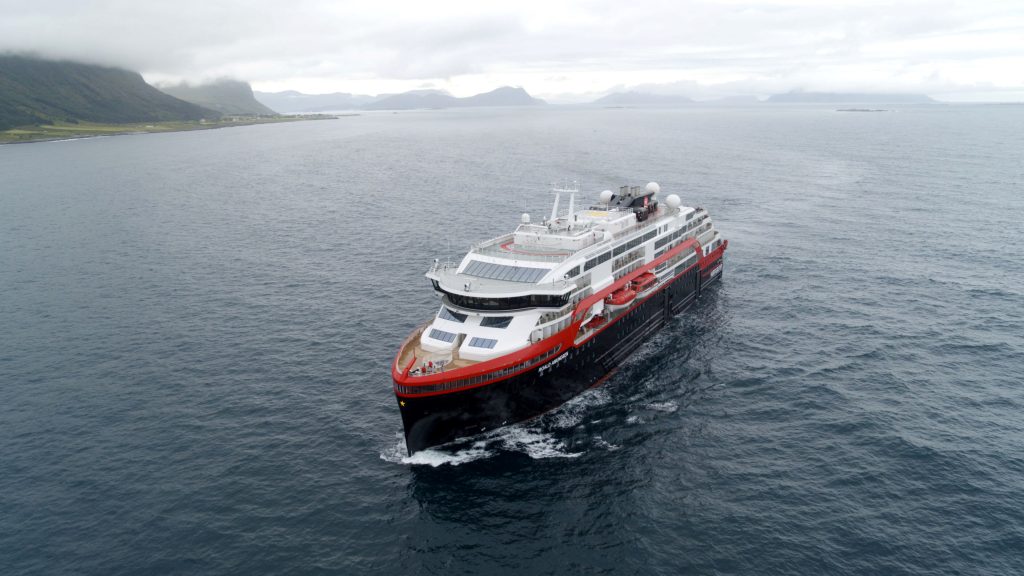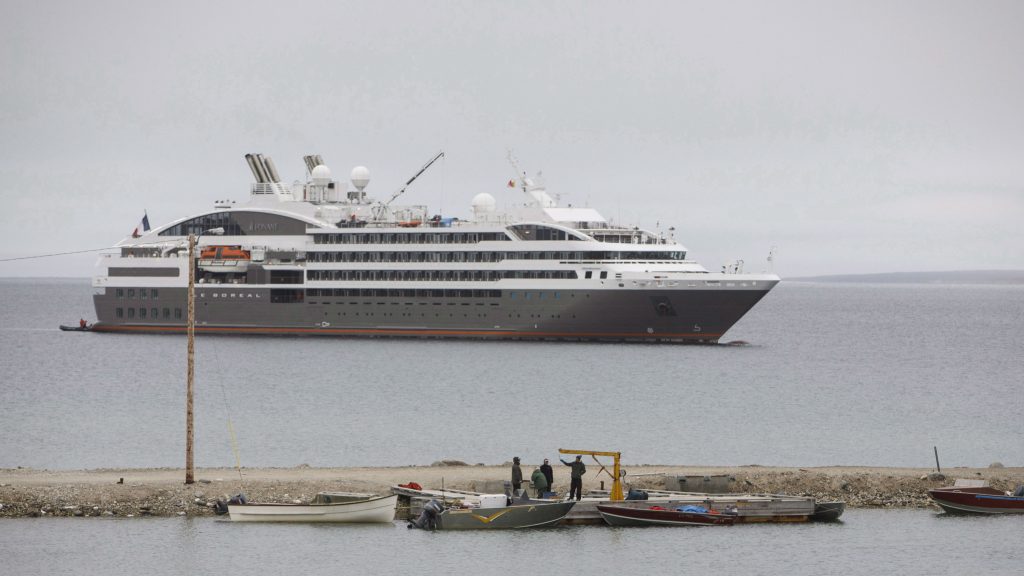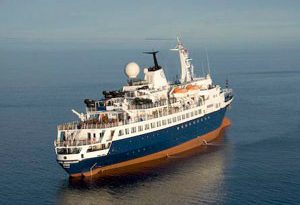Arctic cruise operators brace for coronavirus uncertainty

While the Arctic cruise ship season is still months away, the expedition cruise industry is closely following the outbreak of the novel coronavirus in more southern latitudes that threatens to cripple the entire global travel industry.
“We and our members are constantly staying updated with respect to where in the world the COVID-19 has been reported, and in particular also when it comes to recommendations from the World Health Organization (WHO) and from government health agencies and authorities,” said Malik Milfeldt, a spokesperson for the Association of Arctic Expedition Cruise Operators (AECO).
Fears over the spread of the potentially fatal flu-like viral infection have prompted the U.S. State Department and Centers for Disease Control and Prevention (CDC), as well as Health Canada to issue advisories against going on cruises.
Canada’s Chief Public Health Officer Theresa Tam warned Canadians on Monday to “think twice about being on cruise ships” because of the virus outbreak.
The warning came as Canada airlifted 228 Canadians from the Grand Princess cruise ship that docked in northern California on Monday after at least 21 people aboard the luxury ship tested positive for the novel coronavirus. The Canadian passengers will now be quarantined for 14 days at a Canadian military base in Trenton, Ontario.
Giant Petri dishes

The outbreak on the Grand Princess followed an even larger epidemic on its sister ship Diamond Princess that infected 619 passengers and claimed seven lives in February while the ship was quarantined in Japan.
In the early stages of the shipboard epidemic, the rate of infection on the Diamond Princess was four times higher than in Wuhan, China, the epicentre of what has now become a global outbreak, according to a recent study published in the Journal of Travel Medicine.
“The cruise ship conditions clearly amplified an already highly transmissible disease,” said the Swedish study.
Left unchecked, the disease would have eventually touched 79 per cent of those on board, some 2,900 people, according to the modeling study.
However, evacuating all passengers and crew early on in the outbreak, when the first 10 cases were discovered in early February, would have prevented many more infections, limiting the outbreak to a total of 76 people, the study said.
‘Avoid all cruise ship travel’

The virus can spread quickly on board cruises because of the close contact between passengers, according to the Public Health Agency of Canada (PHAC), which is recommending that “Canadians avoid all cruise ship travel because of the ongoing COVID-19 outbreak.”
Cruise ship passengers include travellers from around the world who may be arriving from areas with known or unknown spread of the novel coronavirus that causes COVID-19, according to Canadian health officials.
“Older people and people with a weakened immune system or underlying medical condition are at a higher risk of developing severe disease,” PHAC officials said in a statement.
PHAC has the authority to inspect cruise ships entering Canadian waters, officials said.
“In the event of widespread illness, PHAC will respond, investigate the outbreak, and work with partners to bring the outbreak under control,” the statement said. “To prevent the introduction and spread of communicable diseases in Canada, in accordance with the Quarantine Act, comprehensive measures, including quarantine, may be taken if there is significant risk to public health.”
The agency maintains a current schedule for all cruise ships entering or departing Canadian waters, officials said. No cruise ships are expected to arrive in Canada until April 2020.
Depending on annual ice conditions, the shipping season in the Canadian Arctic usually begins around end of June, with the majority of cruise ships transiting northern Canadian waters in August and September.
According to statistics provided by the Canadian Coast Guard, in the 2019 Arctic season, a total of 191 vessels passed through Canada’s Arctic waters, including cruise ships, general cargo vessels, bulk carriers, pleasure crafts and tugs.
Fifteen cruise ships, carrying a total of 8,379 people – passengers and crew – made 24 voyages in the Arctic waters of Canada in 2019, the Coast Guard said. The vessels ranged in size from the smallest at 47.8 metres in length with 29 people on board, to the largest, at 198 metres in length with 808 people on board.
Inuit concerns over the coronavirus

However, dealing with an outbreak of the novel coronavirus during a cruise ship passage in the Arctic would pose additional logistical and public health challenges, especially for local Inuit and northern communities, according to the Inuit Circumpolar Council.
Remote Arctic communities are potentially at much higher risk of exposure to such epidemics due to the chronic lack of basic infrastructure, including lack of sewer and running water in many communities, the council, which represents about 180,000 Inuit living in Canada, Alaska, Greenland and Russia, said in a press release.
Inuit communities historically experienced devastating loss of life due to lack of immunity to preventable diseases such as influenza, tuberculosis, and other viruses and diseases, the council said.
“The lethal impacts of disease were compounded by the absence of the resources and infrastructure required to effectively prevent and respond to them,” the council said. “The basic conditions that contributed to vulnerability in the past continue to exist in too many of our communities today, contributing to a high prevalence of tuberculosis, respiratory infections, and greater susceptibility to other viruses and diseases.”
The federal government is “planning for all possible scenarios regarding cruise ships coming to Canadian ports in light of risks associated with COVID-19,” said officials at PHAC.
Related stories from around the North:
Canada: ‘Shocked and disappointed’: Arctic Winter Games cancelled due to coronavirus concerns, CBC News
Finland: Giant cruise ships bringing tourists in record numbers to Helsinki, Yle News
Norway: First case of coronavirus tested in Arctic Norway, The Independent Barents Observer
Russia: Concern over coronavirus outbreak impacts tourism in northern Europe and Arctic Russia, The Independent Barents Observer



